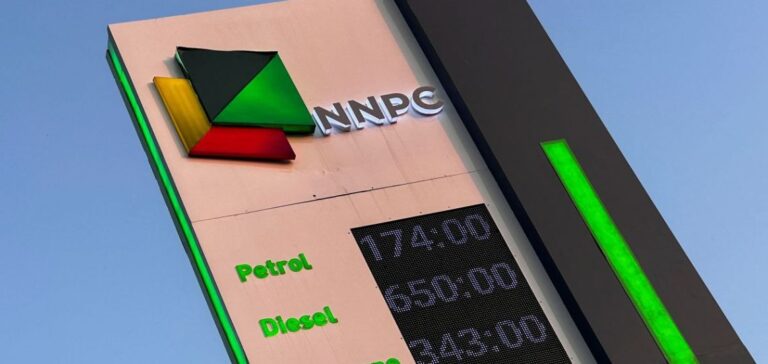Gasoline prices have jumped 26% in Nigeria since new President Bola Tinubu ended a long-standing fuel subsidy on May 30, and the country’s state-owned oil company blamed market forces that now determine pump prices in a statement on July 19.
Nigeria’s petrol prices hit an all-time high, sparking protests
The price of petrol reached an all-time high of Naira 617/litre (81 cents/litre) on July 19, up from Naira 488/litre six weeks ago, prompting protests by rights groups and trade unions.
“These are prices that depend on market realities,” said Mele Kyari, CEO of Nigeria National Petroleum Corporation. “It’s the sense of making sure the market regulates itself. Prices will go up and sometimes they will go down.” Kyari added that “there is no supply problem” and Nigeria’s current gasoline stock is capable of meeting demand for 32 days without further imports.
Experts attributed the price rises to higher world oil prices and a weak naira. Shortly after taking office, Tinubu announced that Abuja would finally abolish its extremely costly petrol subsidy, which he said could no longer be justified in the face of dwindling resources, and end NNPC’s monopoly by allowing private companies to import fuel for domestic consumption. Successive administrations have not eliminated the subsidy program. On May 30, Kyari said that NNPC had financed the costly subsidy, estimated at $10 billion in 2022, from its own limited cash, because the government was unable to cover it.
Nigeria’s fuel deficit persists despite Dangote’s new refinery
Despite being Africa’s leading oil producer, with current production of 1.4 million b/d of crude and condensate, Nigeria imports around 1 million-1.25 million mt/month of gasoline to meet national demand of around 50 million-60 million liters/day, due to the poor state of its refineries, currently under repair. The subsidy represented the difference between the incoming cost of imported gasoline and the regulated pump price at service stations nationwide.
Dangote hopes that unions and rights groups in the country on July 19 said they expected the government to restore local supplies of petroleum products before abolishing the gasoline subsidy, which critics say has allowed unscrupulous companies to manipulate the system, while failing to help the poor.
With state refineries offline, the country depends on Dangote’s new refinery to fill the local fuel gap and make Africa’s largest economy self-sufficient in fuels. Built by Aliku Dangote, Africa’s richest man, the 650000 b/d refinery was inaugurated on May 22 and is due to start production next month.
Private gasoline importers in Nigeria: Economic challenges and opportunities
However, company sources told S&P Global Commodity Insights that operations are being delayed due to logistical problems. The project has experienced years of delays and cost overruns since it was first proposed in 2014.
“There are obstacles…but the company is working around the clock to get the refinery up and running as soon as possible,” said a company source.
This is a $21 billion project and the owners are as eager as anyone to start turning a profit as soon as possible.”
Private importers With Nigeria still reliant on fuel imports for the time being, the country’s regulator, the Nigeria Midstream and Downstream Petroleum Regulatory Agency, has stated that dozens of private companies have taken advantage of free market pricing to get into the gasoline import game.
Previously, NNPC was the sole importer of gasoline, through crude oil swap contracts. But now 56 private companies have been licensed to import gasoline, 10 of which have been approved to supply products in the third quarter of 2023. Imports of refined products have been a major drain on Nigeria’s foreign exchange reserves and the value of its currency. Worsening the country’s economic situation. On July 18, Farouk Ahmed, head of the agency, announced the delivery of the first shipment of gasoline imported by private companies. The 20-ton cargo was brought in jointly by three companies: A.Y. M. Ashafa, Prudent and Emadeb Energy Services.





















